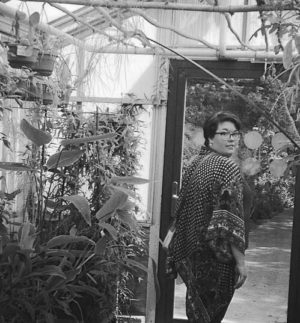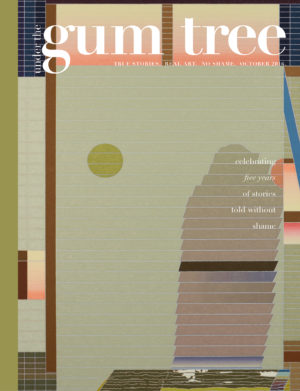Sarah E. Bode

Sarah E. Bode’s storytelling began with her Barbies; since then her creative work has been published in Cahoots Quarterly, Cigale Literary Magazine, and Five Quarterly (along with various articles found in the folds of Palaver, an interdisciplinary journal she co-founded in 2012). She currently lives in Brooklyn #twerkingfortomes at Oxford University Press. Sarah explores the city’s coffee (counter) culture in an on-going montage of first dates.
When and why did you start writing? What inspires your writing most now?
I wrote my first short story in seventh grade, but I’ve been telling stories since my Barbie doll days. From Barbies to Sims to short stories to a horrible attempt at a novel length text at age 14 to torrid fanfiction to AP test essays to personal essays. But I distinctly remember the feeling I got when I completed my first written short story in the seventh grade. I turned in 23 pages, 20 pages past what was required by my Language Arts teacher. That feeling is something I’ve heard most other writers reflect – the unloading of yourself onto the page, whether fictionalized self or your naked truth. It was that feeling that kept me putting a cursor to the screen. What inspires me to write most now is living life and harvesting those life experiences in my personal essays. And of course, the current political circus is also highly inspiring as well as amusing and horrifying.
Why are you drawn to nonfiction?
I could say I’m drawn to nonfiction because it allows me to reflect on my life and choices and experiences and learn from mistakes, yada yada yada. But I think the more honest response is that I’m drawn to nonfiction because writing creative non-fiction, specifically personal essays, gives my self-centeredness and narcissism a place to play. What also factors into the joy of writing nonfiction is the different kinds of creativity that the form encourages. It’s also a favorite turn of phrase of my father to exclaim when telling me about some news story or the like, “You can’t make this shit up.”
You’re featured in our Soundtrack section. How important is music in your everyday life?
As it’s apparent in the sections about my family, music always had a presence in my upbringing. Whether it was being forced to listen to my father’s favorite guitarist, Stevie Ray Vaughn, or watching musicals with my mother, or learning how to play the violin, or prancing around in my backyard with a Walkman belting out tunes – music has always been pumping in the background of my life. Most moments I remember, I associate with songs, as my essay explores. As far as my life now, music is available anytime, anywhere, and everywhere. I keep having to delete pictures off my iPhone, because I’ve choked its storage with songs. There’s music leaking through the open doors of storefronts as I walk down my street in Brooklyn. Friends post new music videos to my Facebook wall, telling me, “YAS QUEEN.” And while I stopped playing violin long ago, and since moving to the city, I don’t have a car to sing in any longer and have been sequestered to my shower, music is still a constant. Always there in the background, ebbing and flowing into the consciousness of traversing my experiences.
In your piece, you describe feeling both oppressed and free. How has music shaped this?
Natural responses to music can be very telling in a person, whether it’s to dance or drum or sing. Mine is singing. This is how I best connect to music, how I feel it pulse through me, how I follow its themes and apply them to my own life. When it comes to singing along to music that I love (or in the case of my father’s repeated classic rock soundtrack of my childhood, tolerated) there’s a strong need within me to stick with the artists actual lyrics. For me, singing along is freedom to be loud and make noise and disturb the airwaves around me. But then there’s also this oppression of being stuck to the artist’s intentions, especially since I’m certainly no songwriter or musician. The oppression is also linked to my father making me sing his songs on repeat.
There’s a fascinating hold music has over us, and you explore this throughout your piece. Why do you think music in particular has this power? And do you find yourself battling against certain songs for the memories they hold?
Absolutely, music has this power. Often songs have memories for me, whether it was playing during a first kiss or I cried along to it in my car driving away from heartbreak. And throughout the essay, I tried to navigate the space between that music and those memories. I want to separate them, but I don’t. I can still enjoy songs even though upon the first strums or breathy meows, I am hearkened away to my past for a couple of chords. I think for me, the essay in some fashion was about coming to terms with that fact, instead of continuing the struggle to separate.

